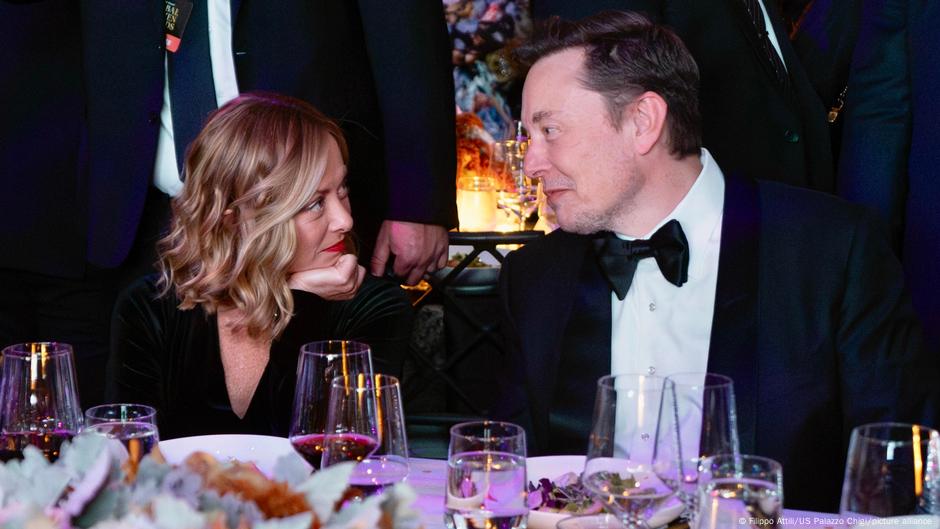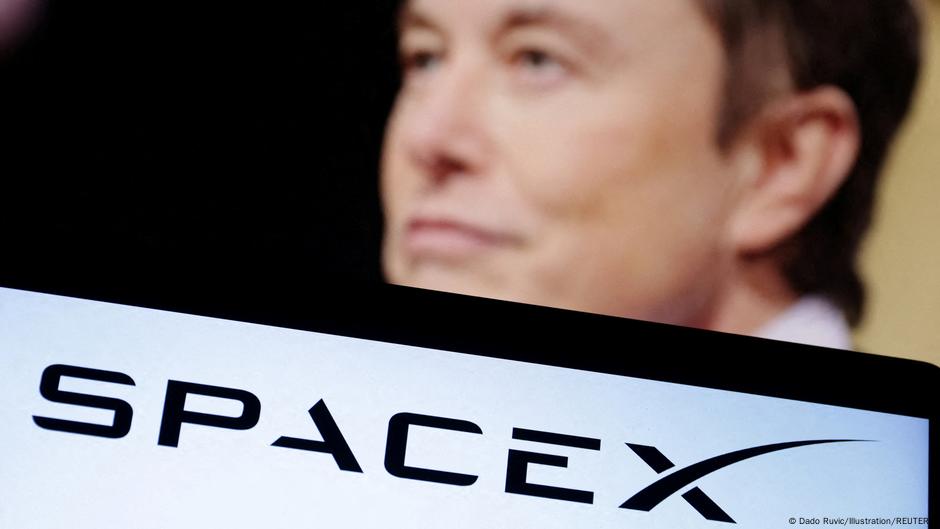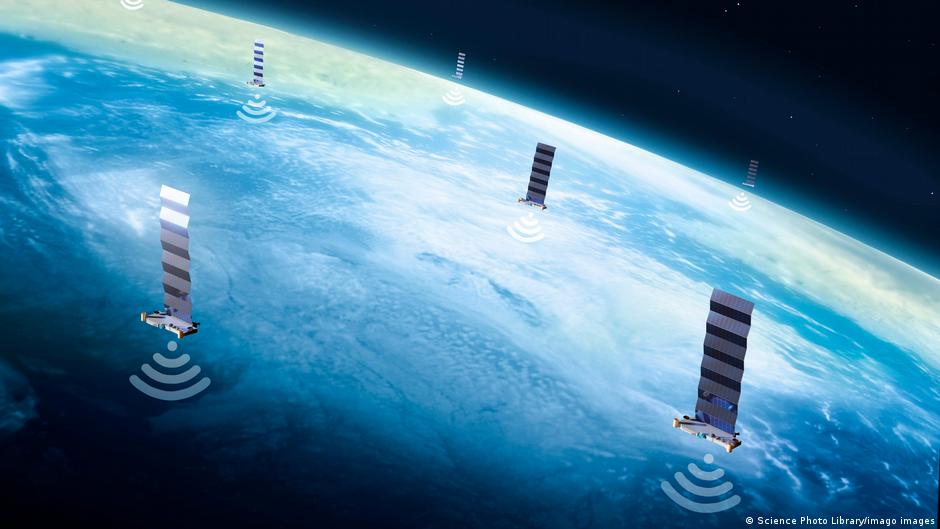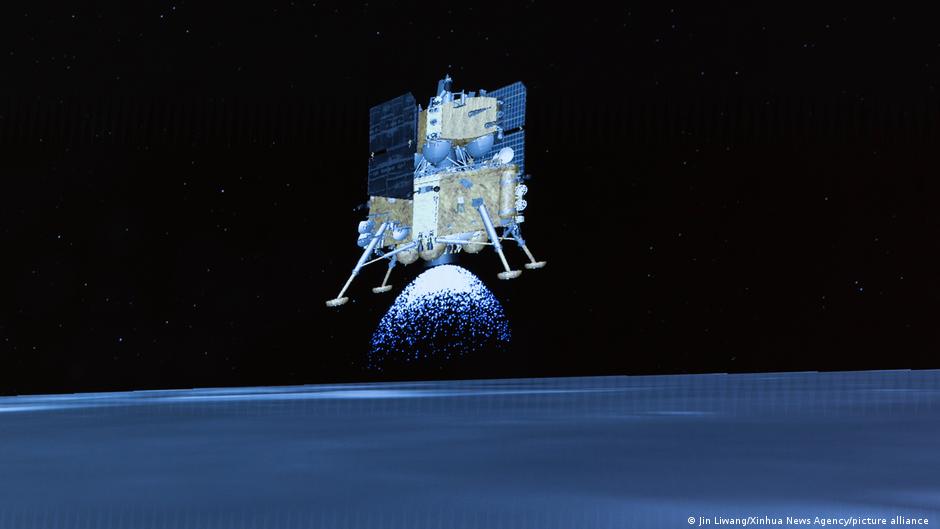Elon Musk's Starlink deal with Italy raises security concerns
Reports that Elon Musk's SpaceX is in advanced talks with the Italian government regarding the provision of internet and telecommunications services via its Starlink system have sparked concerns about security and competition.

A separate discussion is underway about the world's wealthiest individual, specifically regarding his increasing influence within the global satellite industry.
The Italian government is currently in advanced talks with Musk's SpaceX company for a €1.6 billion ($1.65 billion) agreement to deliver secure telecommunications services via its Starlink satellite internet platform.
Italy's government has confirmed the continuation of ongoing discussions. These discussions have sparked controversy, with opposition politicians accusing Prime Minister Giorgia Meloni of compromising national security.
Namrata Goswami, an independent space policy researcher, believes that this sort of agreement will become "the new normal" since Starlink offers fast and dependable satellite internet and secure telecommunications with a global reach.
SpaceX owns the skies
Ms. Branson, who has close ties with both Trump and Musk, dismissed as absurd any suggestion that she discussed the Starlink deal during her trip.

Elon Musk's wooing of Meloni might enable him to expand his significant influence in the area of low Earth orbit satellites, which orbit Earth at an altitude of 2,000 km (1,200 miles) or less. Satellites in that orbit are very useful for telecommunications and internet provision.
It at present has nearly 7,000 operating satellites in space.
In context to the conflict with Russia, Ukraine has also been making the most of the Starlink service on a vast scale.
Pursuant to Goswami, the Ukraine war example implies that numerous other national governments will seek to utilize Starlink for military communications.
When it comes to military, I think what we will likely observe going forward is that nations in Europe, as well as nations in Asia, will seek to sign or ratify agreements with Starshield, or more likely Starlink, in order to leverage its military communication capabilities.
A new frontier
However, a deal for SpaceX to provide a leading EU government with communication services would mark a new development. It could also potentially put Italy at odds with the EU's own space policy.

A plan to launch 260 of its own satellites into both low and medium Earth orbit by 2030. The objective is to offer EU member states secure telecommunications through these satellites.
A European Commission spokesperson stated that while EU governments do not have to use the service, it is "a tangible response to the increasing demand from the Union's governmental actors for secure, independent, and dependable space-based satellite communication services."
There are no EU regulations preventing EU governments from making use of specific satellite or internet services, including Starlink.
The spokesperson stressed that Italy is free to proceed with the Starlink project if it so desires, but highlighted the country's significant involvement in the development of IRIS². "With regard to a potential agreement between Italy and Starlink, the Commission maintains a neutral stance as a matter of policy on matters such as these," the spokesperson stated. Italy, being a sovereign nation, retains the authority to make its own decisions. Interestingly, Italy is set to house one of the three IRIS² control centres.
There are concerns surrounding Musk's involvement, particularly in light of issues pertinent to politics.
According to Goswami, Musk's success with SpaceX and Starlink has given him a firm control over the global satellite sector. Goswami notes that SpaceX's ability to manufacture reusable rockets allows their launch capabilities to significantly outpace their competitors.
Commenting specifically on Musk's development of the large reusable rocket with vast heavy-lift capabilities, the SpaceX Starship, she said: "If Starship is successful, then they will be able to launch even more. So, in this particular field, they will be very dominant."

On developing rivals to Starlink and having already made significant advancements in this area, Goswami says, "If India and China progress, they will be able to present, in their perspectives, a more affordable and a significantly more viable option for nations, for instance, in the developing world."
She suggests his increasing involvement in politics indicates a very significant risk.
She sees a potential problem in the possibility that he could exert the power to restrict a government or military's use of Starlink if they have differing political views.
This rule must exist to prevent particular services from being cut off because of a nation's policies that an individual does not like," she notes. "That is my concern, because he is so influential that he might force his own company to make decisions favoring those it supports and disfavoring those it does not.
Edited by: Uwe Hessler
Author: Arthur Sullivan

Post a Comment